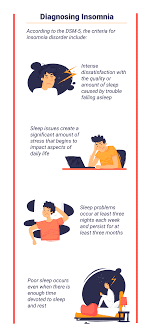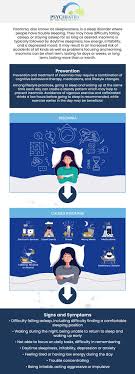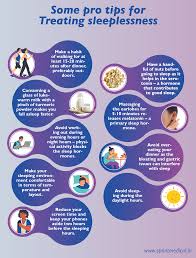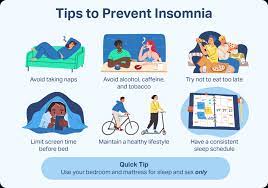The Importance of Effective Sleep Insomnia Treatment
Sleep insomnia, also known as chronic insomnia, is a common sleep disorder that affects millions of people worldwide. Individuals with insomnia often struggle to fall asleep, stay asleep, or experience restful sleep, leading to daytime fatigue, irritability, and impaired cognitive function. Fortunately, there are effective treatments available to help manage and alleviate the symptoms of insomnia.
Behavioral Therapy for Insomnia (CBT-I)
Cognitive Behavioral Therapy for Insomnia (CBT-I) is a structured program that helps individuals identify and change negative thoughts and behaviors that contribute to their sleep difficulties. CBT-I typically involves techniques such as sleep restriction therapy, stimulus control therapy, relaxation training, and cognitive restructuring. Research has shown that CBT-I is highly effective in improving sleep quality and duration in individuals with chronic insomnia.
Medication Options
In some cases, healthcare providers may prescribe medications to help manage insomnia symptoms. Commonly prescribed medications for insomnia include sedative-hypnotics such as zolpidem (Ambien), eszopiclone (Lunesta), and temazepam (Restoril). It’s important to use these medications under the guidance of a healthcare professional due to potential side effects and risks of dependency.
Lifestyle Changes
Implementing healthy lifestyle habits can also play a significant role in improving sleep quality for individuals with insomnia. This includes maintaining a regular sleep schedule, creating a relaxing bedtime routine, avoiding stimulants like caffeine and nicotine close to bedtime, and creating a comfortable sleep environment free of distractions.
Alternative Therapies
Some individuals may find relief from insomnia symptoms through alternative therapies such as acupuncture, yoga, meditation, or herbal supplements like valerian root or melatonin. While these approaches may not work for everyone, they can be worth exploring as part of a comprehensive treatment plan.
Consulting with a Healthcare Professional
If you are experiencing persistent difficulty sleeping or suspect you have chronic insomnia, it’s essential to consult with a healthcare professional for an accurate diagnosis and personalized treatment plan. By addressing the underlying causes of your insomnia and implementing effective treatment strategies, you can improve your sleep quality and overall well-being.
Top 6 Benefits of Effective Insomnia Treatment
- Improves sleep quality and duration
- Enhances daytime alertness and cognitive function
- Reduces feelings of fatigue and irritability
- Helps individuals establish healthy sleep habits
- Addresses underlying causes of insomnia for long-term relief
- Offers a variety of treatment options tailored to individual needs
Challenges and Considerations in Insomnia Treatment: Understanding the Potential Downsides
- Some insomnia treatments may have side effects such as drowsiness or dizziness.
- Certain medications used for insomnia treatment can be habit-forming and lead to dependency.
- Behavioral therapies like CBT-I require commitment and consistency to see long-term results.
- Finding the right treatment approach for individual needs may involve trial and error.
- Insurance coverage for certain insomnia treatments can be limited, leading to out-of-pocket expenses.
- Treatment of chronic insomnia may not provide immediate relief and require patience and persistence.
Improves sleep quality and duration
One significant benefit of effective sleep insomnia treatment is its ability to improve both the quality and duration of sleep. By addressing the underlying causes of insomnia and implementing appropriate interventions such as cognitive behavioral therapy or medication, individuals can experience more restful and uninterrupted sleep. Improved sleep quality not only enhances overall well-being and cognitive function but also contributes to better physical health and emotional balance. With proper treatment, individuals can enjoy a more rejuvenating and fulfilling night’s rest, leading to increased energy levels and a greater sense of vitality throughout the day.
Enhances daytime alertness and cognitive function
Effective treatment for sleep insomnia can significantly enhance daytime alertness and cognitive function. By addressing the underlying causes of insomnia and improving sleep quality, individuals are better able to feel refreshed and energized during the day. Adequate restorative sleep allows for optimal brain function, leading to improved concentration, memory retention, and overall cognitive performance. Enhanced daytime alertness and cognitive function not only benefit daily activities but also contribute to better mood regulation and overall quality of life.
Reduces feelings of fatigue and irritability
Effective treatment for sleep insomnia can significantly reduce feelings of fatigue and irritability experienced by individuals struggling with this sleep disorder. By improving the quality and duration of sleep, individuals are better able to wake up feeling refreshed and energized, leading to a more positive mood throughout the day. Addressing insomnia not only enhances physical well-being but also contributes to mental clarity and emotional stability, allowing individuals to engage more fully in their daily activities and interactions.
Helps individuals establish healthy sleep habits
One significant benefit of sleep insomnia treatment is its ability to help individuals establish healthy sleep habits. By addressing the root causes of insomnia and implementing effective treatment strategies, individuals can learn valuable techniques to improve their sleep hygiene. This may include establishing a consistent bedtime routine, creating a conducive sleep environment, and practicing relaxation techniques before bed. Through guided support and education provided during treatment, individuals can cultivate sustainable habits that promote restful and rejuvenating sleep, ultimately enhancing their overall well-being and quality of life.
Addresses underlying causes of insomnia for long-term relief
One significant advantage of sleep insomnia treatment is its focus on addressing the underlying causes of insomnia to provide long-term relief. By identifying and targeting the root factors contributing to sleep disturbances, such as stress, anxiety, or poor sleep habits, individuals can experience sustainable improvements in their sleep quality and duration. This proactive approach not only alleviates immediate symptoms but also equips individuals with strategies to maintain healthy sleep patterns for the long term, promoting overall well-being and quality of life.
Offers a variety of treatment options tailored to individual needs
One significant advantage of sleep insomnia treatment is that it offers a variety of treatment options tailored to individual needs. This personalized approach recognizes that each person’s experience with insomnia is unique, and what works for one individual may not work for another. By providing a range of treatment modalities such as cognitive behavioral therapy, medication options, lifestyle changes, and alternative therapies, individuals can work with healthcare professionals to find the most effective solution that aligns with their specific symptoms, preferences, and lifestyle. This tailored approach increases the likelihood of successful outcomes and empowers individuals to take control of their sleep health in a way that best suits their individual needs.
Some insomnia treatments may have side effects such as drowsiness or dizziness.
One significant drawback of certain sleep insomnia treatments is the potential for side effects such as drowsiness or dizziness. While these treatments aim to alleviate insomnia symptoms and improve sleep quality, the occurrence of side effects like drowsiness or dizziness can impact an individual’s daily functioning and overall quality of life. These side effects may pose safety concerns, especially when engaging in activities that require alertness, such as driving or operating machinery. It is crucial for individuals undergoing insomnia treatment to be aware of these potential side effects and discuss any concerns with their healthcare provider to ensure a balanced approach to managing their sleep disorder.
Certain medications used for insomnia treatment can be habit-forming and lead to dependency.
One significant drawback of using medications for insomnia treatment is the potential for habit formation and dependency. Certain sedative-hypnotic medications commonly prescribed for insomnia, such as zolpidem (Ambien) and eszopiclone (Lunesta), can be habit-forming if used for an extended period. Over time, individuals may develop a tolerance to these medications, requiring higher doses to achieve the same sleep-inducing effect. This cycle of increasing dosage can lead to dependency, making it challenging to discontinue the medication without experiencing withdrawal symptoms. It is crucial for healthcare providers to closely monitor the use of these medications and explore alternative treatment options to minimize the risk of dependence in individuals seeking relief from insomnia.
Behavioral therapies like CBT-I require commitment and consistency to see long-term results.
One significant drawback of behavioral therapies like Cognitive Behavioral Therapy for Insomnia (CBT-I) is the level of commitment and consistency required to achieve long-term results. CBT-I involves a structured program that necessitates dedicated effort from individuals to identify and modify negative thoughts and behaviors that contribute to their sleep difficulties. This treatment approach often involves implementing specific techniques, adhering to a strict sleep schedule, and practicing relaxation strategies regularly. Without consistent participation and commitment to the therapy process, individuals may struggle to experience sustained improvements in their sleep quality and duration.
Finding the right treatment approach for individual needs may involve trial and error.
When addressing sleep insomnia treatment, one notable drawback is the potential need for trial and error in finding the most suitable approach for individual needs. Since each person’s experience with insomnia can vary in terms of underlying causes and responsiveness to different treatments, it may take time and experimentation to determine the most effective solution. This process of trial and error can be frustrating and time-consuming for individuals seeking relief from their insomnia symptoms, as they navigate through various therapies, medications, lifestyle changes, and alternative treatments to find what works best for them. Despite this challenge, persistence and collaboration with healthcare professionals can ultimately lead to identifying a personalized treatment plan that addresses the specific needs of each individual dealing with sleep insomnia.
Insurance coverage for certain insomnia treatments can be limited, leading to out-of-pocket expenses.
One significant drawback of sleep insomnia treatment is the limited insurance coverage for certain therapies, which can result in substantial out-of-pocket expenses for individuals seeking relief from their insomnia symptoms. While some treatments, such as medication prescriptions, may be partially covered by insurance plans, other effective options like cognitive behavioral therapy for insomnia (CBT-I) or alternative therapies may not receive the same level of coverage. This financial barrier can make it challenging for individuals to access comprehensive and holistic treatment approaches for their sleep disorder, potentially limiting their ability to achieve optimal outcomes in managing their insomnia.
Treatment of chronic insomnia may not provide immediate relief and require patience and persistence.
One significant con of treating chronic insomnia is that the interventions and therapies may not offer immediate relief. Managing and overcoming sleep insomnia often requires patience, consistency, and persistence. Individuals seeking treatment for chronic insomnia may need to commit to long-term lifestyle changes, therapy sessions, or medication regimens before experiencing noticeable improvements in their sleep quality. This delay in seeing results can be frustrating and challenging for individuals who are eager for quick solutions to their sleep difficulties. However, understanding that sustainable progress takes time and effort is essential in navigating the journey toward better sleep health.




